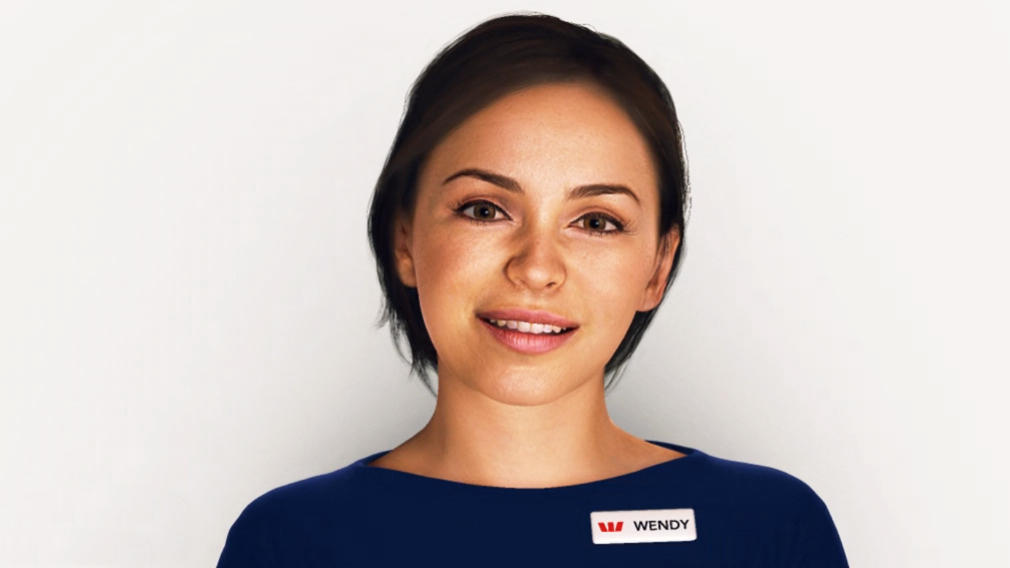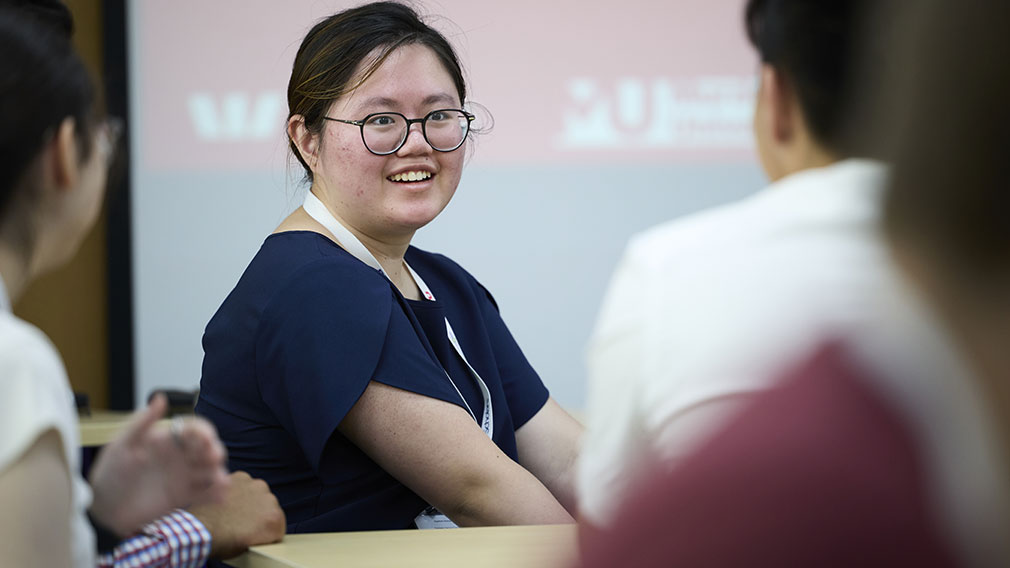Meet Wendy, Westpac’s latest AI recruit

Wendy, a computer generated 'digital human' introduced this month by Westpac.
When you first meet Wendy, it’s easy to mistake her for a human.
Smile at her through your webcam, she’ll smile back. If you look confused, you can see her empathise. And shift around in front of your laptop, her eyes follow you as she listens and answers your questions.
At first, it’s all a little strange. Because Wendy’s not a real person.
She’s a computer generated “digital human”, introduced this month by Westpac, as part of its growing exploration into the use of artificial intelligence, or AI, virtual avatars and digital transformation.
In contrast to the bank’s virtual assistant called Red, which helps customers with basic banking tasks, Wendy – whose initial “remit” is to be a digital job coach for young Australians – combines four AI technologies to provide a sophisticated, hyper-real experience. Wendy’s ability to “think” is powered by IBM Watson’s AI conversation engine, her “listening” and “speaking” skills use Google Cloud Services, and her lifelike, perceptive appearance created by fast-growing New Zealand-based start-up Soul Machines.
“Wendy allows us to accelerate our experimentation, and get deep into playing with emerging technologies to understand what works, what doesn’t, and what’s right for us as a bank,” says Westpac consumer bank innovation lead Annie Shu, who has piloted Wendy’s six month development.
The virtual avatar is also a key element of the bank’s play to support more young people, says Shu.
"This age group is very tech savvy. They love digital interactions to the point they almost love them better than interacting with a real person," she says.
“The starting point of Wendy's knowledge is about how to help young people find jobs, because our research shows just how much young people need help in that space.”
New data released by Westpac shows almost a third of young Australians aged 14 to 18 are not confident tackling the initial steps of searching for a job, in particular navigating finances for the first time, with more than two thirds of teens (71%) not feeling confident opening a bank account on their own to get paid.
“And this is where we saw an opportunity for Wendy,” says Shu. “She provides a third party, non-objective, non-biased view, from someone who doesn’t intimidate them.”
The platform created by Soul Machines – founded in 2016 by Greg Cross and Mark Sagar, the Oscar-winning animation specialist behind computer-generated faces in Avatar and King Kong – fuses AI, computational brain models and experiential learning. The start-up, which last month raised $40 million to fuel expansion, was also the driving force behind Air New Zealand’s digital human Sophie, ANZ’s Jamie, Mercedes Benz’s Sarah, Royal Bank of Scotland’s Cora and Proctor & Gamble’s skin-care obsessed Yumi.
With Wendy, Shu says while she’s likely to be the first digital job coach in Australia, it’s more than about just creating another digital human, but a new technology model that allows for quick and continuous changes and updates.
Throughout development, Shu says a common question has been why Wendy was designed as a dark haired, young woman, with many immediately assuming she must have been programmed by “a group of middle-aged men”.
She explains that Wendy’s development – which was in fact led by a team of predominantly young females – was influenced by data analysis and research so she’d “relate to as many people as possible”.
“Research shows us that in the first five seconds of people meeting a stranger, if you look at how much rapport can be built, females by far outweigh males,” she says. “Wendy also amalgamates the ABS Census data for what an ‘average’ Australian is like. Her age – which is about 25-30 – and ethnicity is a mix of what all the data shows us.”
Shu says her look was also shaped by fairly firm feedback from focus groups – they didn't like Wendy with a pony-tail, or a piercing, or too much makeup, and they didn’t want her to look sideways (because it seemed she was untrustworthy) or to laugh (that was “too human”). And after much testing, her clothing ended up being based on the French navy boatneck style of Westpac’s uniform designed by Carla Zampatti.
While being a “digital job coach” is just the beginning for Wendy, Shu says the aim is to take small steps to see how people react and gradually “train” her before she’s “promoted” into other financial education roles, such as helping people with savings or preparing them for their first overseas holiday.
“Like all early concepts with emerging AI technology, it’s all about learning and growing,” says Shu, who is part of a team of around six analysing Wendy’s conversations, training her to respond and finessing her vocabulary.
“It requires the right people to help guide her, and we’re conscious of training her in the right way to ensure she is ethical and avoid AI bias when training her. It's almost like raising an infant. The minute they are born, they know absolutely nothing. Every aspect of what Wendy sees, what Wendy hears, what Wendy talks about, needs to be trained, and trained correctly so she learns and grows the right way. But the pace of her growth is really exciting.”



